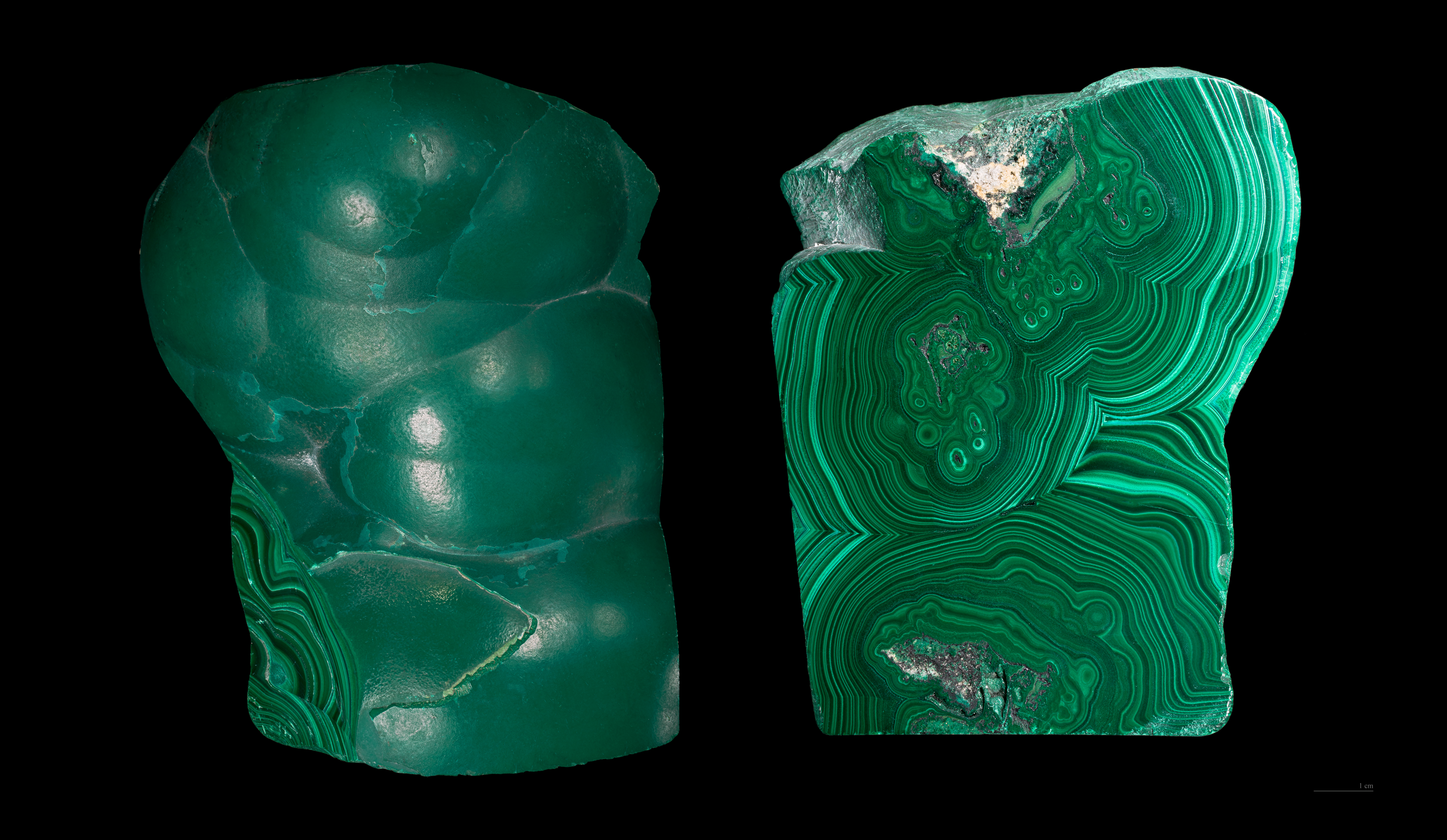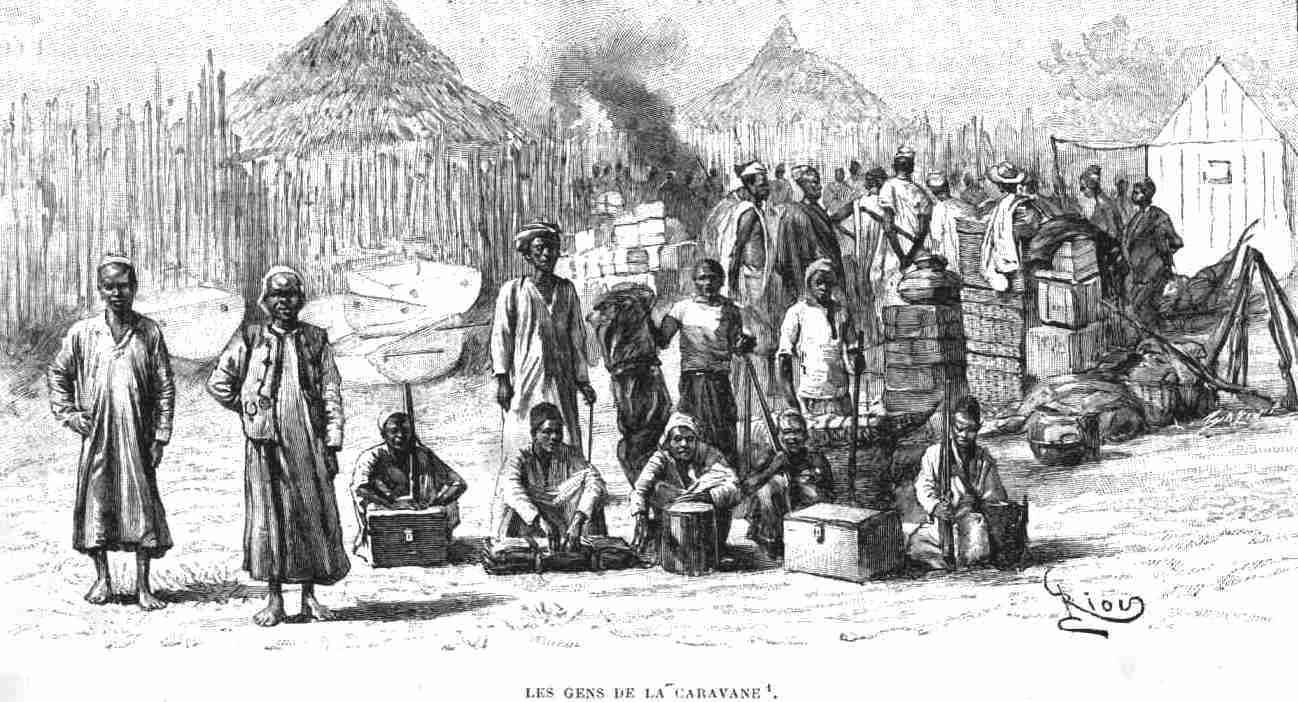|
Sanga People
The Sanga people (also ''Luba-Garenganze'', ''Luba-Sanga'' or ''Southern Luba'') are an ethnic group that lives mostly in the Katanga Province of the Democratic Republic of the Congo. The missionary Frederick Stanley Arnot relates that a copper trader named Kalasa became a close friend of the old chief of Sanga. At one point Kalasa's son Msidi ( Msiri) visited the Sanga country instead of his father, where he found the people at war with the Baluba people, who were invading from the north. Msiri's party had four guns, unknown weapons in the area at that time, and a few shots from the guns put the Baluba to flight. The old chief was grateful, gave Msiri increasing power, end eventually made him his successor. Mziri founded the state of Geranganze with its capital at Bunkeya and took the title of king in 1870. Shortly after this the Sanga people revolted against Msiri's rule, led by their chief Mpande. In the 1890s the Sanga put up a strong resistance to the colonial ''Force Publi ... [...More Info...] [...Related Items...] OR: [Wikipedia] [Google] [Baidu] |
Katanga Province
Katanga was one of the four large provinces created in the Belgian Congo in 1914. It was one of the eleven provinces of the Democratic Republic of the Congo between 1966 and 2015, when it was split into the Tanganyika Province, Tanganyika, Haut-Lomami, Lualaba Province, Lualaba, and Haut-Katanga provinces. Between 1971 and 1997 (during the rule of Mobutu Sese Seko when Congo was known as Zaire), its official name was Shaba Province. Katanga's area encompassed . Farming and ranching are carried out on the Katanga Plateau. The eastern part of the province is considered to be a rich mining region, which supplies cobalt, copper, tin, radium, uranium, and diamonds. The region's former capital, Lubumbashi, is the second-largest city in the Congo. History Copper mining in Katanga dates back over 1,000 years, and mines in the region were producing standard-sized ingots of copper for international transport by the end of the 10th century CE. In the 1890s, the province was beleaguered ... [...More Info...] [...Related Items...] OR: [Wikipedia] [Google] [Baidu] |
Sanga Language (Bantu)
Sanga, or Luba-Sanga, is a Bantu language of the Democratic Republic of Congo The Democratic Republic of the Congo (french: République démocratique du Congo (RDC), colloquially "La RDC" ), informally Congo-Kinshasa, DR Congo, the DRC, the DROC, or the Congo, and formerly and also colloquially Zaire, is a country in .... It is closely related to Luba-Katanga. References Luban languages Languages of the Democratic Republic of the Congo {{DRCongo-stub ... [...More Info...] [...Related Items...] OR: [Wikipedia] [Google] [Baidu] |
Frederick Stanley Arnot
Frederick Stanley Arnot (12 September 1858 – 14 May 1914) was a British missionary who did much to establish missions in what are now Angola, Zambia and the Democratic Republic of the Congo (DRC). Early years Arnot was born in Glasgow on 12 September 1858. His family lived in the town of Hamilton, southeast of Glasgow, for several years. There he became close to his neighbours, the family of the medical missionary David Livingstone. He looked up to Livingstone as a hero and determined to emulate him. He felt practical skills would be needed in his future missionary career. At fourteen he left school to become an apprentice joiner in the Glasgow shipyards. Arnot was brought up in the Church of Scotland, but became a member of the Plymouth Brethren. First expedition In July 1881, aged 22, Arnot embarked for Cape Town. He was not associated with a missionary board, although in his work he was always glad to cooperate with those who were. He aimed to find a region in the interi ... [...More Info...] [...Related Items...] OR: [Wikipedia] [Google] [Baidu] |
Msiri
Msiri (c. 1830 – December 20, 1891) founded and ruled the Yeke Kingdom (also called the Garanganze or Garenganze kingdom) in south-east Katanga (now in DR Congo) from about 1856 to 1891. His name is sometimes spelled 'M'Siri' in articles in French. Other variants are "Mziri", "Msidi", and "Mushidi"; and his full name was Mwenda Msiri Ngelengwa Shitambi.''Mwami Msiri, King of Garanganze''. Retrieved 8 February 2007. Msiri's origins and rise to power From Tabora to Katanga Msiri was a Nyamwezi from in modern-day |
Baluba People
The Luba people or Baluba are an ethno-linguistic group indigenous to the south-central region of the Democratic Republic of the Congo. The majority of them live in this country, residing mainly in Katanga, Kasai and Maniema. The Baluba Tribe consist of many sub-groups or clans who speak various dialects of Luba (e.g. Kiluba, Tshiluba) and other languages, such as Swahili. The Baluba developed a society and culture by about the 400s CE, later developing a well-organised community in the Upemba Depression known as the Baluba in Katanga confederation. Luba society consisted of miners, smiths, woodworkers, potters, crafters, and people of various other professions. Kingdoms of the Savanna: The Luba and Lunda Empires Alexander Ives Bortolot (2003), Department of Art History and Archaeology, Columb ... [...More Info...] [...Related Items...] OR: [Wikipedia] [Google] [Baidu] |
Bunkeya
Bunkeya is a community in the Lualaba Province of the Democratic Republic of the Congo. It is located on a huge plain near the Lufira River. Before the Belgian colonial conquest, Bunkeya was the center of a major trading state under the ruler Msiri. Early history In the later 19th-century, Bunkeya was the capital of Msiri, the son of an East African trader. Msiri's father had been in the business of buying copper ore in Katanga and transporting it to the east coast of Africa for resale. As a young man Msiri remained behind in the region as his father's agent. He became leader of a group of Bayeke people, and established a state that extended from the Luapula River south to the Congo-Zambezi watershed, and from Lake Mweru in the east to the Lualaba River in the west. Based on Bunkeya, the state controlled a huge central-African trading network, mostly dealing in slaves but also in ivory, salt, copper and iron ore. Traders came to Bunkeya from the Zambezi and Congo basins, from An ... [...More Info...] [...Related Items...] OR: [Wikipedia] [Google] [Baidu] |
Force Publique
The ''Force Publique'' (, "Public Force"; nl, Openbare Weermacht) was a gendarmerie and military force in what is now the Democratic Republic of the Congo from 1885 (when the territory was known as the Congo Free State), through the period of Belgian colonial rule (Belgian Congo – 1908 to 1960). The FP was retitled as the Congolese National Army or ANC in July 1960 after independence. Establishment The ''Force Publique'' was initially conceived in 1885 when King Leopold II of the Belgians, who held the Congo Free State as his private property, ordered his Secretary of the Interior to create military and police forces for the State. Soon afterwards, in early 1886, Captain Léon Roger (of the Belgian Army's Carabiniers) was sent to the Congo with orders to establish the force. A few months later, on 17 August, he was promoted to "Commandant of the Force Publique". A number of other Belgian officers and non-commissioned officers were also dispatched to the territory as the nuc ... [...More Info...] [...Related Items...] OR: [Wikipedia] [Google] [Baidu] |
King Leopold II Of Belgium
* german: link=no, Leopold Ludwig Philipp Maria Viktor , house = Saxe-Coburg and Gotha , father = Leopold I of Belgium , mother = Louise of Orléans , birth_date = , birth_place = Brussels, Belgium , death_date = , death_place = Laeken, Brussels, Belgium , burial_place = Church of Our Lady of Laeken , religion = Roman Catholicism Leopold II (french: link=no, Léopold Louis Philippe Marie Victor, nl, Leopold Lodewijk Filips Maria Victor; 9 April 1835 – 17 December 1909) was the second King of the Belgians from 1865 to 1909 and the self-made autocratic ruler of the Congo Free State from 1885 to 1908. Born in Brussels as the second but eldest-surviving son of Leopold I and Louise of Orléans, Leopold succeeded his father to the Belgian throne in 1865 and reigned for exactly 44 years until his death, the longest reign of a Belgian monarch to date. He died without surviving legitimate sons. The current Belgian king descends from his neph ... [...More Info...] [...Related Items...] OR: [Wikipedia] [Google] [Baidu] |
Mwenda Jean Bosco
Jean-Bosco Mwenda, also known as Mwenda wa Bayeke (1930 – September 1990), was a pioneer of Congolese fingerstyle acoustic guitar music. He was also popular in other African countries, particularly in East Africa, and in the late 1950s and early 1960s was briefly based in Nairobi, Kenya, where he had a regular radio show and became a profound influence on a generation of Kenyan guitarists. Background Jean-Bosco Mwenda was born in 1930 at Bunkeya (now part of Lualaba Province) in what was then the Belgian Congo, but lived most of his life in Lubumbashi, where in addition to playing music he had a job in a bank and with the local mining company, managed other bands, and owned a hotel on the Zambian border. He died in September 1990 in a car accident in Zambia. Mwenda used the name Mwenda wa Bayeke, claiming descent from the Sanga noble clan of Bayeke. His music draws on various sources including the traditional music of his Luba/Sanga people. He was one of the few Congolese to ob ... [...More Info...] [...Related Items...] OR: [Wikipedia] [Google] [Baidu] |
Lubudi Territory
Lubudi is a territory in the Lualaba Province of the Democratic Republic of the Congo The Democratic Republic of the Congo (french: République démocratique du Congo (RDC), colloquially "La RDC" ), informally Congo-Kinshasa, DR Congo, the DRC, the DROC, or the Congo, and formerly and also colloquially Zaire, is a country in .... The territory holds the main factory of Ciments et materiaux de construction du Katanga (CIMENKAT). References Populated places in Lualaba Province Territories of the Democratic Republic of the Congo {{DRC-geo-stub ... [...More Info...] [...Related Items...] OR: [Wikipedia] [Google] [Baidu] |
Mitwaba Territory
Mitwaba is a territory in the Haut-Katanga Province of the Democratic Republic of the Congo The Democratic Republic of the Congo (french: République démocratique du Congo (RDC), colloquially "La RDC" ), informally Congo-Kinshasa, DR Congo, the DRC, the DROC, or the Congo, and formerly and also colloquially Zaire, is a country in .... History On 29 January 2022, about 100 Mai Mai Kata Katanga rebels led by Gédéon Kyungu captured the settlement of Mitwaba; the rebels used the opportunity to once more declare the intention to restore Katanga's independence. Though the insurgents did not harm the local civilians, many fled, fearing Mai Mai Kata Katanga's reputation. The separatist militants retreated from Mitwaba Territory before Congoloese security forces could respond effectively, though some insurgents reportedly surrendered as the rest withdrew. References Populated places in Haut-Katanga Province {{DRC-geo-stub ... [...More Info...] [...Related Items...] OR: [Wikipedia] [Google] [Baidu] |
Pweto Territory
Pweto Territory is a territory in the Haut-Katanga Province of the Democratic Republic of the Congo (DRC). The headquarters are in the town of Pweto. Geography Pweto is part of Haut-Katanga Province. It lies to the west and north of Lake Mweru on the border with Zambia. The Luvua River, a headstream of the Congo River, leaves the lake just west of the town of Pwetu to flow north its confluence with the Lualaba River opposite the town of Ankoro. Other rivers flowing through the territory include the Lubule River, the Lumekele River and the Kilulishi River. The territory is subdivided into the following chiefdoms and sectors: Kiona-Nzini Chiefdom, Moero Sector, Mwenge Sector and Pweto Chiefdom Economy The territory is agriculturally productive and the lake is rich in fish. There is no formal industry apart from the Dikulushi Mine near Kilwa, the capital of Moero Sector, operated by Anvil Mining, an Australian company. There is informal mining in other areas, including cas ... [...More Info...] [...Related Items...] OR: [Wikipedia] [Google] [Baidu] |





